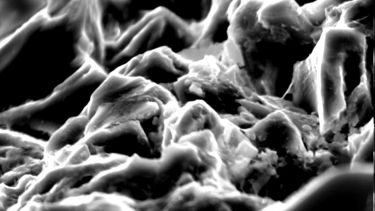Nuclear Engineering
Nuclear energy provides over a third of the world’s low-carbon electricity. Our research is working on ways that we can continue to generate power this way safely, securely and sustainably. We look at the materials used in power generation, emerging generation methods and nuclear waste disposal.

Our nuclear engineering research is divided into three sub-themes:
Research centres and groups
Immobilisation Science Laboratory
A University Research Alliance set-up by BNFL to address the decline in the nuclear science knowledge base.
Cements@Sheffield
Innovative advanced and non-traditional cement and concrete technology.
Advanced Nuclear Materials
The next generation of reactor technology, whether fission or fusion, requires advanced materials capable of tolerating extremes in temperature, pressure, corrosion and radiation. The group at Sheffield is working on advances accident tolerant reactor fuel, and the next generation of fuel understanding the effects of radiation damage and fission gas bubble formation on stability. At the same time the group is focused on manufacturing next generation materials using advanced techniques such as additive layer manufacturing, spark-plasma synthesis and others. The combined aim is the development of new materials from initiation to manufacture.
Key contacts for Advanced Nuclear Materials:
- Professor Neil Hyatt
- Professor Russell Hand
- Professor Mark Rainforth
- Professor Derek Sinclair
- Professor Iain Todd
- Dr Günter Möbus
- Dr Amy Gandy
- Dr Hajime Kinoshita
- Dr Karl Travis
Waste Development and Characterisation
The safe immobilisation of radioactive nuclear waste is paramount in the expansion of nuclear power generation. Here in Sheffield we focus on both the next generation of waste from nuclear reactors, while at the same time resolving issues linked with historical problematic waste sources. Example research includes, waste volume minimisation using advanced fabrication technologies, low temperature routes to immobilisation and novel glass/ceramic compositions.
In our Cements@Sheffield group, we are also researching development, characterisation and use of advanced and traditional cementitious materials to enable the safe long-term storage and eventual disposal of wastes resulting from the nuclear fuel cycle.
Key contacts for Waste Development and Characterisation:
- Professor Neil Hyatt
- Professor Russell Hand
- Professor John Provis
- Professor Fergus Gibb (Emeritus Professor)
- Dr Claire Corkhill
- Dr Amy Gandy
- Dr Hajime Kinoshita
- Dr Karl Travis
- Dr Martin Stennett
Geological Disposal
The long-term storage of nuclear waste links with the choice of waste forms and is of equal importance, for example the methods use for storage impact on the materials chosen for immobilisation. The group at Sheffield leads in the development of deep borehole technologies for long-term storage, while at the same time is developing new approaches for traditional vault based geological storage.
Key contacts for Geological Disposal Research
